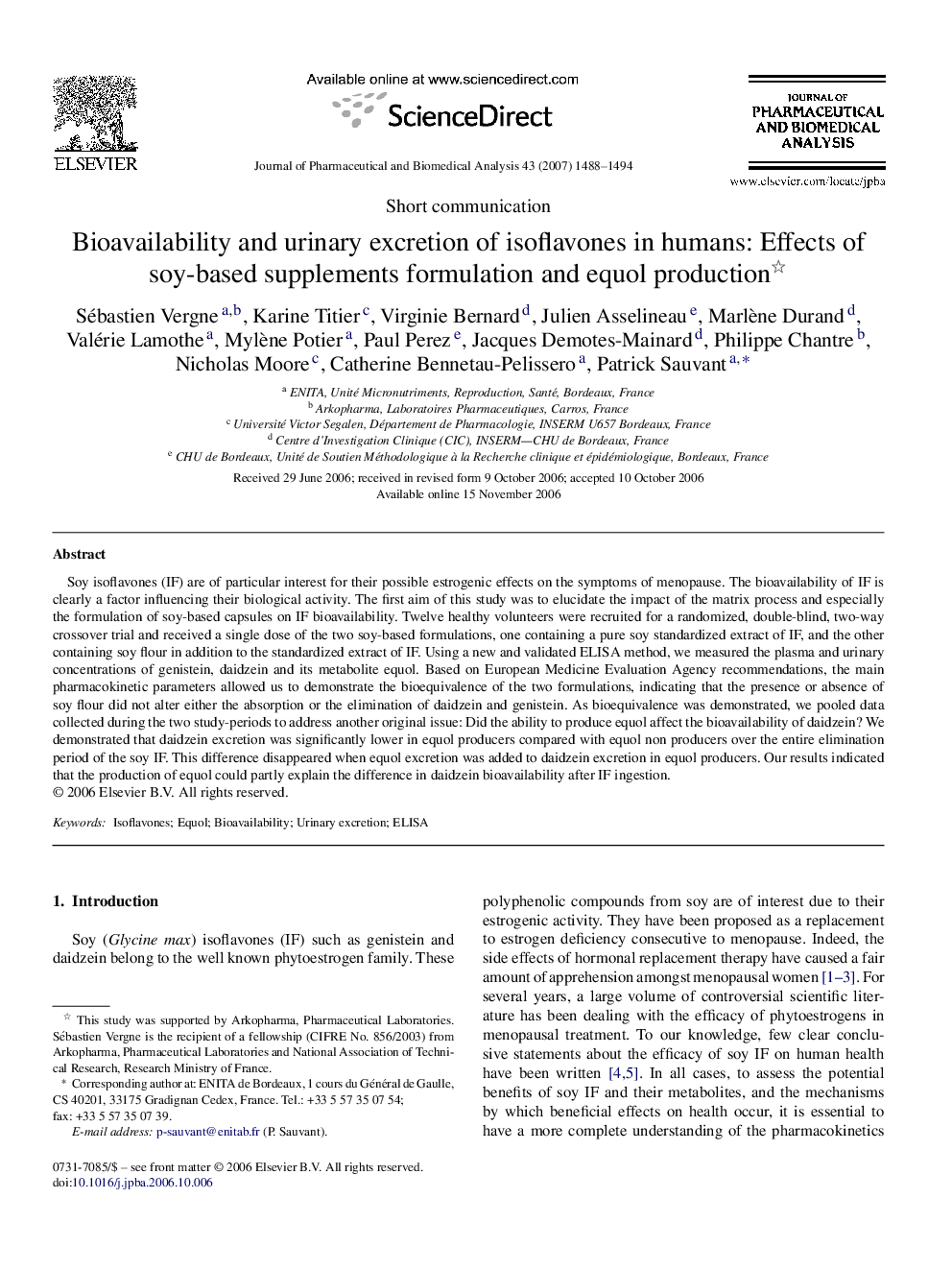| Article ID | Journal | Published Year | Pages | File Type |
|---|---|---|---|---|
| 1223931 | Journal of Pharmaceutical and Biomedical Analysis | 2007 | 7 Pages |
Soy isoflavones (IF) are of particular interest for their possible estrogenic effects on the symptoms of menopause. The bioavailability of IF is clearly a factor influencing their biological activity. The first aim of this study was to elucidate the impact of the matrix process and especially the formulation of soy-based capsules on IF bioavailability. Twelve healthy volunteers were recruited for a randomized, double-blind, two-way crossover trial and received a single dose of the two soy-based formulations, one containing a pure soy standardized extract of IF, and the other containing soy flour in addition to the standardized extract of IF. Using a new and validated ELISA method, we measured the plasma and urinary concentrations of genistein, daidzein and its metabolite equol. Based on European Medicine Evaluation Agency recommendations, the main pharmacokinetic parameters allowed us to demonstrate the bioequivalence of the two formulations, indicating that the presence or absence of soy flour did not alter either the absorption or the elimination of daidzein and genistein. As bioequivalence was demonstrated, we pooled data collected during the two study-periods to address another original issue: Did the ability to produce equol affect the bioavailability of daidzein? We demonstrated that daidzein excretion was significantly lower in equol producers compared with equol non producers over the entire elimination period of the soy IF. This difference disappeared when equol excretion was added to daidzein excretion in equol producers. Our results indicated that the production of equol could partly explain the difference in daidzein bioavailability after IF ingestion.
